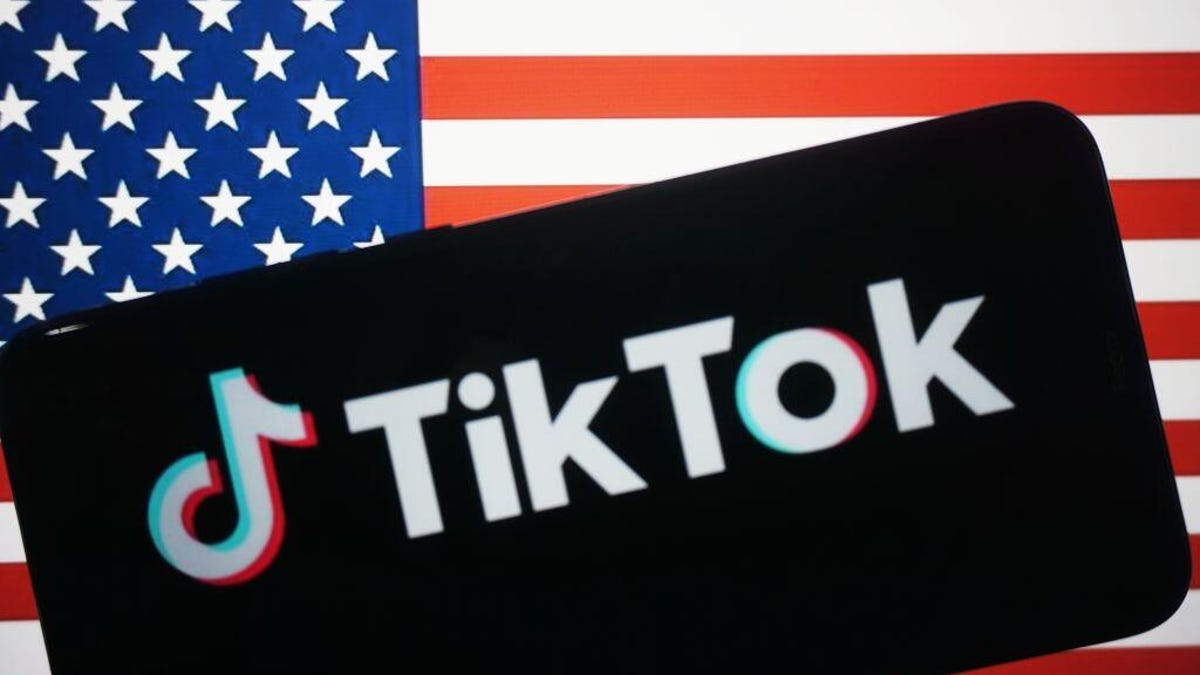
After weeks of being bogged down, legislation that could lead to a ban on TikTok is being fast-tracked by lawmakers in the US House of Representatives and could be approved by Congress soon.
The measure would require the popular social media platform’s Chinese owner, ByteDance, to sell TikTok to a buyer deemed fit by US officials. The measure is being attached to an aid package for Ukraine and Israel that’s scheduled for a Saturday vote in the House. After that, it would need to pass the Senate. It’s unclear when that could happen, but at least one outlet is reporting that a Senate vote could take place as soon as next week.
In a statement posted on the platform X, formerly known as Twitter, TikTok said it’s “unfortunate” that the House “is using the cover of important foreign and humanitarian assistance to once again jam through a ban bill that would trample the free speech rights of 170 million Americans, devastate 7 million businesses, and shutter a platform that contributes $24 billion to the U.S. economy, annually.”
The House originally passed legislation in March that would’ve led to a ban unless TikTok was sold off within six months, but the measure failed to gain traction in the Senate. The version currently being considered would extend that time period to nine months, with a potential for an additional three-month extension.
Lawmakers in both political parties have long voiced concerns that the popular video app, which has more than 150 million American users, could be a threat to national security and could be used by the Chinese government to spy on Americans or spread disinformation to further China’s agenda.
TikTok continues to deny those accusations. Ahead of the March vote on the previous legislation, TikTok rallied its US users, calling on them to urge their representatives on Capitol Hill to vote it down.
If the legislation does go into effect and TikTok is ultimately banned, experts say the unprecedented move would undoubtedly prompt legal challenges from free speech advocates, the tech industry and others, especially in the absence of any direct evidence showing Chinese government ties or surveillance.
So what’s next for lawmakers and TikTok? Here’s what you need to know.
What would the bill do?
The bill is aimed at forcing ByteDance to sell TikTok to a buyer that American officials are OK with, as well as guaranteeing that ByteDance no longer has access to US user data or control over the TikTok algorithm that decides what videos American users see.
If TikTok doesn’t comply within nine months of the bill taking effect, the government could require the removal of its app from US app stores. Under the new legislation, that time period could potentially be extended to a full year.
What’s next?
Senate leadership wasn’t enthusiastic about taking up the original legislation after it was overwhelmingly approved by the House as a standalone bill. But the new legislation’s ties to aid for Ukraine and Israel may now force their hands.
And some Senate lawmakers are eager to see TikTok legislation passed. Sens. Mark Warner, a Democrat, and Marco Rubio, a Republican, released a joint statement voicing their support after the passage of the original House bill. They said they’re both concerned about the national security threat posed by TikTok and pointed to the platform’s “enormous power to influence and divide Americans,” adding that ByteDance remains “legally required to do the bidding of the Chinese Communist Party.”
While President Joe Biden pledged to sign the original bill if it made it through Congress, former President Donald Trump, the presumptive Republican nominee running against Biden in November, has said he doesn’t support a ban.
After originally calling for a ban during his presidency, Trump said in March on CNBC’s “Squawk Box” that though he still thinks the app is a danger to national security, he no longer thinks it should be banned, saying that “there are a lot of young kids on TikTok who will go crazy without it.”
Trump went on to say that banning TikTok would only boost the power of Facebook, which he referred to as an “enemy of the people.”
Who else opposes the bill?
Free speech and digital rights groups, as well as some security experts, have long opposed the idea of a ban, saying that singling out TikTok doesn’t do anything to solve the broader problems with social media as a whole.
Instead, they argue that lawmakers would be better off passing comprehensive digital privacy laws that would protect the personal information of Americans by stopping all social media companies from collecting it and selling it to data brokers.
In a blog post, the Electronic Frontier Foundation said in March that until that happens, even if TikTok is banned or sold, there’s nothing stopping the Chinese government, or others, from just buying up that same data.
“Ultimately, foreign adversaries will still be able to obtain our data from social media companies unless those companies are forbidden from collecting, retaining and selling it, full stop,” the EFF said.
Digital privacy rights group Fight For the Future agreed.
“The data of Americans is already susceptible to bad actors, foreign and domestic, because Congress has waited so long to act,” the group said in a March statement. “Censorship is not the answer, data privacy legislation is.”
